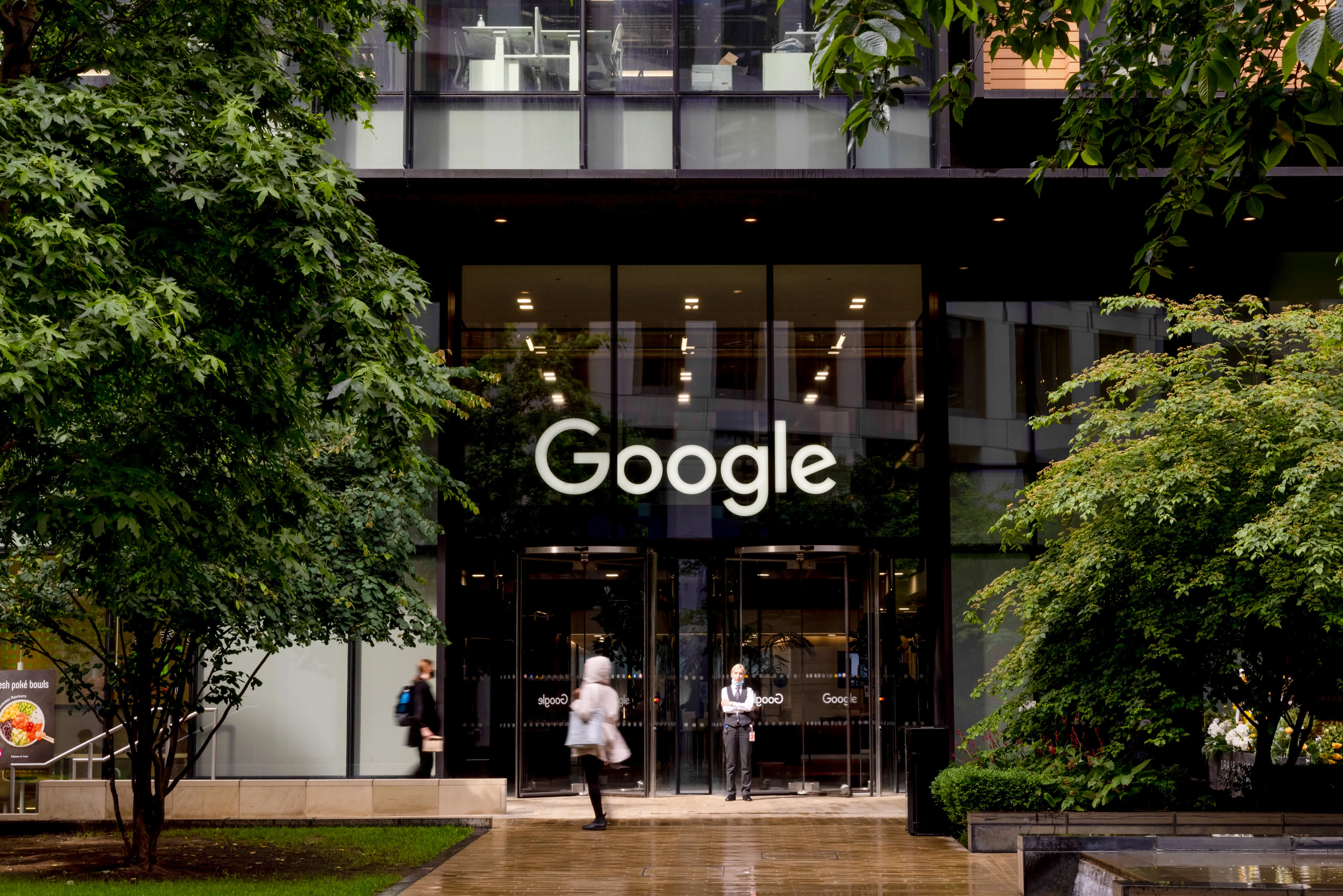Alphabet Inc. is currently grappling with a novel challenge that, by most accounts, is seen as positive — the strategic allocation of its rapidly growing cash reserves.
During the second quarter, the parent company of Google generated an impressive $29 billion in cash, an outcome influenced by workforce reductions and measures aimed at curbing losses within its diverse array of moonshot projects. This robust cash influx left Alphabet with approximately $118 billion in cash and short-term marketable securities, an amount exceeded in the Nasdaq 100 Stock Index only by Apple Inc.'s total of approximately $167 billion.
However, unlike Apple, which is committed to returning a substantial portion of its cash to shareholders through stock buybacks and dividends, Alphabet's capital return strategy remains somewhat less defined, prompting investors to seek further clarity regarding its intentions.
“We haven’t really had to address this issue with Alphabet in the past because they hadn’t been as prolific with generating this kind of cash,” stated Daniel Morgan, Senior Portfolio Manager at Synovus Trust Co., during an interview. His funds hold shares of Alphabet.
Typically, investors prefer companies to deploy large cash reserves towards investments that yield better returns or to distribute the funds back to shareholders.
In the Nasdaq 100, the three highest cash generators — Alphabet, Apple, and Microsoft Corp. — collectively accumulated a staggering $84 billion in the last quarter, constituting the largest haul for any non-holiday period in history, as per data compiled by Bloomberg.
While Alphabet has increased its buyback efforts and expanded its repurchase authorization to $70 billion in April, its recent expenditure of $15 billion on share buybacks during the previous quarter was merely half of the cash it generated.
In contrast, over the last five fiscal years, Apple has returned nearly $5 billion more than the record-breaking $454 billion in cash it generated.
In July, Alphabet announced that Ruth Porat, who has served as Chief Financial Officer since 2015, would take on the newly created role of President and Chief Investment Officer.
Unlike Apple and Microsoft, Alphabet does not offer a dividend. Moreover, in contrast to Microsoft's $69 billion acquisition of video game maker Activision Blizzard Inc. in the prior year, Alphabet has shown a tendency to shy away from significant acquisitions.
Even if Alphabet's executives were inclined to pursue major acquisitions, regulatory scrutiny may present hurdles. Microsoft's journey towards finalizing its Activision deal encountered obstacles, and Amazon.com Inc.'s acquisition of Roomba manufacturer iRobot Corp. continues to face regulatory examination.
“Given the regulatory environment, it's challenging for Alphabet to make a significant impact like Microsoft did with Activision,” explained Angelo Zino, Senior Equity Analyst at CFRA Research. Zino suggested that Alphabet is more likely to engage in incremental deals on a smaller scale.
According to Synovus Trust's Morgan, a more prudent approach for Alphabet could involve strategic investments similar to Microsoft's involvement with ChatGPT owner OpenAI. Such investments could instantly enhance shareholder value and provide recognition for Alphabet's ventures into industries traditionally less central to its operations.
For now, share buybacks appear to be the preferred method of returning cash to shareholders for major tech firms that consistently generate tens of billions in earnings each quarter.
“Although Alphabet could always consider initiating a small dividend, we think it’s more likely to stick to the buyback approach,” Zino opined. “A dividend could send a perception that growth opportunities may not be as strong.”
Over the past decade, Apple embarked on one of Wall Street's most extensive share repurchase programs, leading to a steady reduction in outstanding shares. Over the last 12 months, the company repurchased over $80 billion in stock, securing its place as the leader among U.S. companies in this regard, according to data compiled by Bloomberg.

Subscribe to our newsletter!
As a leading independent research provider, TradeAlgo keeps you connected from anywhere.








